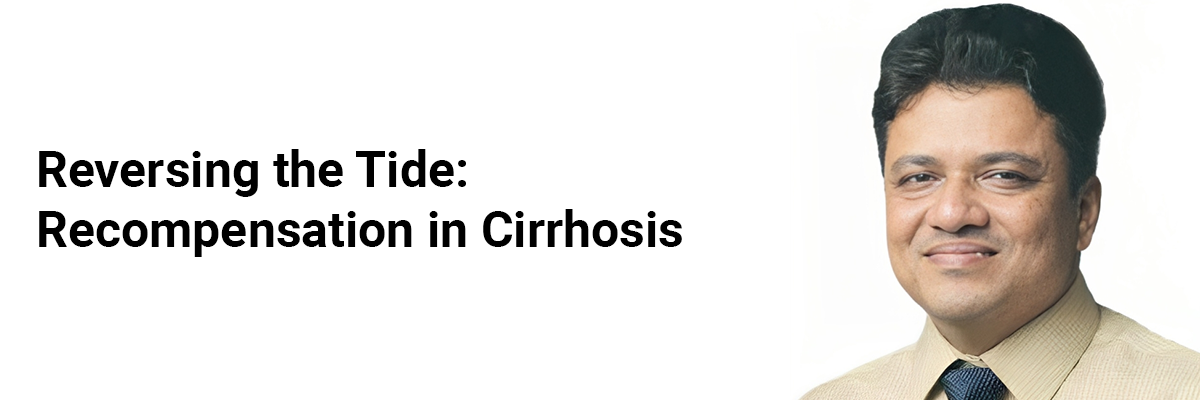
 IJCP Editorial Team
IJCP Editorial Team
Reversing the Tide: Recompensation in Cirrhosis
Hepatic recompensation has been defi ned as removal of the primary etiologic factor, resolution of all decompensating events and sustained improvement in hepatic function (bilirubin, INR, albumin).
No ascites (off diuretics), no HE (off Precoma regime), no variceal bleed, on nonselective beta-blockers (NSBBs) or postTIPS, which are sustained for more than 12 months.
Various factors have been linked to hepatic recompensation. These include: severity of liver disease (Child score, MELD score, bilirubin, INR, albumin at the start of treatment), female sex, severity of portal hypertension (platelet count), BMI (malnutrition and obesity) and diabetes.
Risk of liver-related events is not similar between recompensated and compensated cirrhosis. The clinical course of recompensated cirrhosis and its long-term outcomes cannot be extrapolated from compensated cirrhosis.
Most of the evidence on hepatic recompensation has been obtained through retrospective studies and is based on transplant registry databases. It is confi ned to cirrhosis due to alcohol, HBV and HCV.
Current challenges in hepatic recompensation are that the extent of improvement in hepatic function needed to defi ne recompensation is still uncertain. There are no clear criteria as to when diuretics or anti-HE therapy can be safely stopped. Successful therapy for other etiologies such as NASH, AIH, PBC, PSC are not defi ned.
Questions such as can NSBBs be discontinued or should HCC screening be continued in these patients remain unanswered. There is a need for uniform defi nition incorporating all etiologies.
Noninvasive biomarker tests and AI based reliable clinical workfl ow for diagnosis, prognostic stratifi cation and clinical management of recompensated cirrhosis may be the scenario in the future.

IJCP Editorial Team
Comprising seasoned professionals and experts from the medical field, the IJCP editorial team is dedicated to delivering timely and accurate content and thriving to provide attention-grabbing information for the readers. What sets them apart are their diverse expertise, spanning academia, research, and clinical practice, and their dedication to upholding the highest standards of quality and integrity. With a wealth of experience and a commitment to excellence, the IJCP editorial team strives to provide valuable perspectives, the latest trends, and in-depth analyses across various medical domains, all in a way that keeps you interested and engaged.



















Please login to comment on this article